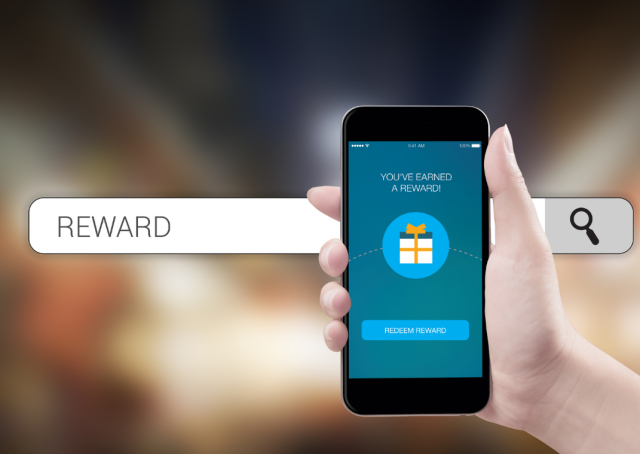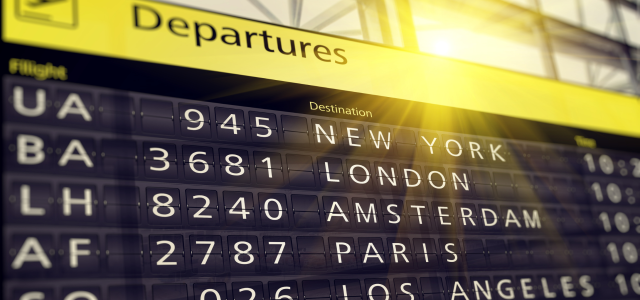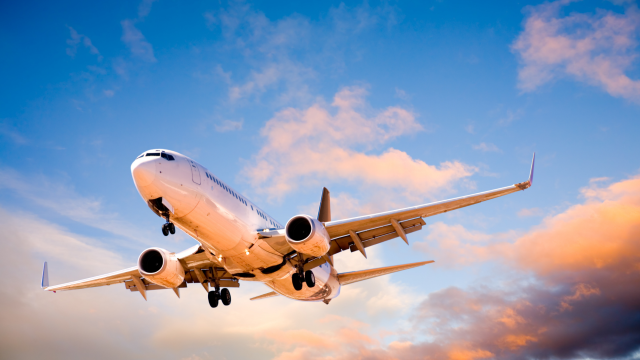Reward schemes and programs have been around for years and more and more companies globally now have loyalty programs – in fact they’re growing at 9% a year*. A loyalty sign-up reward can be the difference between a one-time sale and a loyal lifetime customer. In this digital driven world, now more than ever rewards have become an expected part of the customer experience. Businesses are expanding rewards programs to incorporate social and behavioural actions while also providing their customers with a more personalised experience.
Starting in the 1950s with simple stamps or tokens to collect and trade for services or bonus goods, today’s brands are offering increasingly sophisticated ways to surprise and delight their customers. Acquiring a new customer is five times as expensive as retaining an existing customer so it makes sense for brands to focus attention and financial spend on loyalty and reward programs.
People like to feel that they are being rewarded for their custom. That the brands they use are appreciating their loyalty. According to KPMG study last year, 81% of millennials said that loyalty schemes made them spend more with the brand. However 78% said they would switch programs if they thought there was something better on offer. Brands will have to keep ahead and retain the millennial –and wider- market with personalized, attractive reward schemes.
Spend more get more
These reward programs vary across industries. In the hotel industry, members of the Hilton hotels reward scheme can download a mobile app, use it to check the status of their hotel room, to check in when the room is ready and to even use the phone as a key to get into the room. No need to visit the reception desk at all.
Some of the world’s largest airlines have made major changes to their loyalty schemes. American Airlines, Lufthansa, United Airlines, Air France–KLM and Delta Air Lines, now offer rewards based on the amount spent rather than miles flown. Last year, Air France and Accor expanded the partnership between their respective loyalty programs — Flying Blue and Le Club Accor Hotels — to allow travellers to earn miles and points simultaneously when traveling with both companies.
Online retail brand AliExpress offers an innovative customer rewards system. Every time a user's friend registers on the platform they receive a reward which can be redeemed against their next purchase. Once a user has accumulated rewards valuing over €20, they can withdraw their funds and make a purchase. They also offer a 4-tier member system: bronze, silver, gold and diamond. The level of spend determines the type of member you become. Those on the highest –diamond –can avail of exclusive discounts and other offers not available for the first level customers.
Does size matter?
Brands tend to stick with regular, smaller rewards rather than less frequent, larger bonuses for customers. Undoubtedly this is to better manage any financial impact on the brands themselves but equally this tends to be favoured by customers. Small rewards throughout the year, and the subsequent communication such as an email or notification informing the customer of their points/rewards, provides brands with an opportunity to engage with customers and potentially secure further sales and retain customer loyalty.
Why smaller and instant works best
It’s all about instant gratification for customers. For industries like e-commerce, repeat purchases are frequent so brands offering something like discounted shipping or an additional discount off the price can lead to big savings for the customer. For physical businesses, such as cafes and restaurants, mobile app-based loyalty programs can offer this same feeling of instant gratification. Digital loyalty apps offering immediate rewards in the form of VIP perks, benefits or even that free coffee.
As a technology company specialising in tailor-made add-on solutions, Companjon helps industry providers connect with their customers and increase loyalty when things don’t go as planned for them. As an example, a customer can purchase a delay solution that will protect him/her against a bus delay and with compensation offered in the form of money or a voucher to personalise their experience, and turn it from a negative to a positive one.
Research shows, in fact, that the timing of an acknowledgment can sometimes be more important than the actual form of that acknowledgement**. Customers respond well to small, frequent and instant rewards and with digital advancements in this area it’s easier for businesses to access this level of sophistication in loyalty programs.
A positive customer experience can elevate satisfaction to loyalty within any industry, and is especially a crucial component for meeting the high expectations of todays’ modern day buyer.
About Companjon
Companjon is Europe’s newest technology company specialising in tailor-made add-on solutions. We partner with industry providers and operators to provide fast, flexible and fully automated solutions that are tailored to their customers’ online bookings and purchases - ensuring that they have peace of mind if plans change. From claims to payouts, the process is seamless, flexible and entirely digital.
Ready to outshine the competition, improve customer interaction and gain unrivalled loyalty? Get in touch with our team to learn more.
Sources:
*Sloan Review, 2018
**Deloitte Insights, 2016
KPMG Customer loyalty report, 2019
Elastic Path, 201
Subscribe to updates
Get the latest insights and updates from Companjon.



